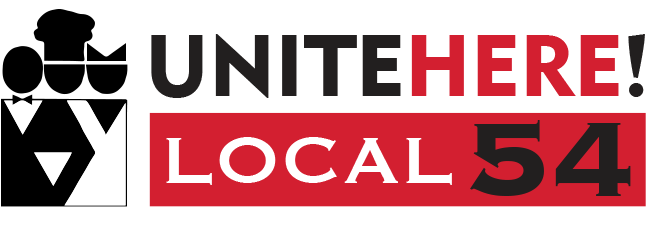REPORT: Icahn’s Costly Vendetta: The Effects of the Labor Dispute at the Taj Mahal
 Read the Full Report: Effects of Labor Dispute at Taj Mahal
Read the Full Report: Effects of Labor Dispute at Taj Mahal
Icahn’s Costly Vendetta: The Effects of the Labor Dispute at the Taj Mahal
Executive Summary
In October 2014, Carl Icahn, the current owner of the Trump Taj Mahal and the Tropicana, did something at the Trump Taj Mahal that no other casino employer in the modern history of Atlantic City had done—he eliminated health insurance and other benefits for around 1,000 cooks, housekeepers, bartenders, cocktail servers, and other service workers.
Icahn’s unprecedented actions provoked a labor dispute between the casino workers and the billionaire.
This report finds that:
- In the first quarter of the labor dispute, hotel occupancy DROPPED by 12 percentage points even as the industry INCREASED occupancy by 5 percentage points. The drop in occupancy continued through the present quarter.
- One way to measure the Trump Taj Mahal’s performance relative to the rest of the industry is by comparing RevPAR (Revenue Per Available Room). In the first half of 2014, the Trump Taj Mahal had RevPAR of almost 60% of the rest of the industry average. In the final three months of 2014, the wheels came off as the Trump Taj Mahal’s RevPAR fell to just 40% of the rest of the industry average, a point from which it has not recovered.
- If Icahn had not picked a fight with the casino workers, and the Trump Taj Mahal’s RevPAR had remained at 60% of the industry average, it would have translated to about an additional $20 million EACH QUARTER in revenue. In total, between October 2014 and the end of June 2016, the Taj Mahal lost out on over $150 million in revenue.
- If instead of fighting his employees, Icahn had reinvested in the casino and, starting in the third quarter of 2015, Taj had been able to INCREASE its RevPAR relative to the rest of the industry to75%, it would have meant an additional $65 million in revenue for the Taj Mahal or a total of $215 million.
- Icahn has chosen to wage a 22-month battle with 1,000 employees that has cost the Taj Mahal an estimated $150 million when the conflict could have been resolved for a few million dollars a year. It is fair to ask whether this is a business decision or if one of the richest men in the world has some axe to grind with employees that make an average of less than $12 per hour.
